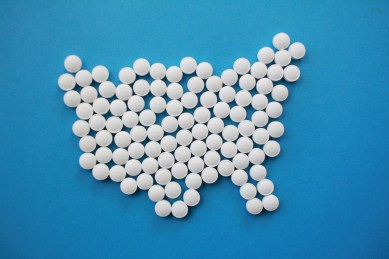Anonna Dutt is a Principal Correspondent who writes primarily on health at the Indian Express. She reports on myriad topics ranging from the growing burden of non-communicable diseases such as diabetes and hypertension to the problems with pervasive infectious conditions. She reported on the government’s management of the Covid-19 pandemic and closely followed the vaccination programme. Her stories have resulted in the city government investing in high-end tests for the poor and acknowledging errors in their official reports. Dutt also takes a keen interest in the country’s space programme and has written on key missions like Chandrayaan 2 and 3, Aditya L1, and Gaganyaan. She was among the first batch of eleven media fellows with RBM Partnership to End Malaria. She was also selected to participate in the short-term programme on early childhood reporting at Columbia University’s Dart Centre. Dutt has a Bachelor’s Degree from the Symbiosis Institute of Media and Communication, Pune and a PG Diploma from the Asian College of Journalism, Chennai. She started her reporting career with the Hindustan Times. When not at work, she tries to appease the Duolingo owl with her French skills and sometimes takes to the dance floor. ... Read More
Trump imposes 100% tariffs on branded products: Will this impact Indian drugmakers?
Indian companies supply 47% of all generic medicines prescribed in the US

US President Donald Trump on Friday announced a fresh slew of tariffs, including a 100 per cent tariff on “branded or patented pharmaceutical products.” The only exemption is for companies that are building plants in the US.
Representatives from the industry have said that this is unlikely to affect the Indian industry, which largely exports generic drugs to the US. Yet, it has led to confusion and panic among the country’s drug manufacturers.
monthly limit of free stories.
with an Express account.
The confusion — what does the US mean by branded drugs?
Without an executive order on the new tariffs announced by President Trump in a Truth Social post, the Indian industry is currently confused about what would be considered branded drugs.
“When it comes to patented drugs, the definition is clear. A tariff on patented drugs would affect products from countries such as Japan, Switzerland or other European countries that hold a majority of the pharmaceutical patents. While India mostly supplies generic medicines, companies use different brand names for some of these products, especially the ones available over the counter. Would the new tariff be applicable to these over-the-counter products? Would they be considered ‘branded’ as per the trademark act? All of these questions are yet to be answered,” said an industry expert, on condition of anonymity.
Viranchi Shah, from the Indian Drug Manufacturers Association, said, “Although there is no executive order yet, prima facie it seems that it is meant for high value innovative products.”
Former DG of Pharmaceutical Export Promotion Council of India (Pharmexcil) Udaya Bhaskar said, “There is no way to assess the impact of the new tariffs unless we know what the US means by branded — is it a branded innovative product, is it a product that is off patent but the originator company continues to use the same brand name, or would it also encompass all generic medicines that happen to carry a brand name. We have to wait and see. But, for now, it seems that the Indian industry may be exempt from the new tariffs.”
Why is the announcement important?
Despite several rounds of tariff announcements, the Indian pharmaceutical industry has largely remained unscathed. This is a big relief, considering the US is the biggest foreign market for Indian pharmaceutical manufacturers. The US accounted for 34.5 per cent of India’s total pharmaceutical export in FY2025, valued at USD 10.5 billion. To compare, the next biggest buyer was the UK that accounted for 3 per cent of the country’s total pharmaceutical export, valued at just USD 913.9 million, according to data from Pharmexcil.
There is barely any duty imposed by the US on Indian pharmaceutical products, while India imposes around 10% duty on products it imports from the US.
Bhaskar, however, said that there is an uncertainty in the industry still as the United States conducts a section 232 review — to determine the effect of the imports on national security.
“What this means is that the US may impose tariffs on all Indian pharmaceutical products later if it wants. If the tariffs are as high as 50% or 100% — Indian companies will lose all competitive advantage. The 30-40 per cent lower costs is what gives Indian generics competitive advantage. If a higher tariff is imposed, the market may be captured by countries or even Europe. While countries like Bangladesh can also produce these generics, they do not have the capacity for volumes like India and its plants would have to be inspected by the US Food and Drug Administration (FDA). European companies, on the other hand, have the capacity and do not need FDA inspections.”
What will be the impact on US patients?
Not only will any tariff on these generic pharmaceutical products impact Indian industry, it will also impact the US patients. Indian companies supply 47 per cent of all generic medicines prescribed in the US. More than half of the prescriptions of five of the 10 most common therapy areas — hypertension, mental health, medicines to control lipids, medicines for nervous system disorders, and anti-ulcer drugs — were supplied by India too.
Take the example of the drug Rosuvastatin used for the treatment of high cholesterol levels. After an Indian generic entered the US market, the number of Americans who were able to afford the drug doubled between 2016 and 2022, according to ORF.
Medicines from Indian companies provided $219 billion in savings to the US healthcare system in 2022, according to data from IQVIA.